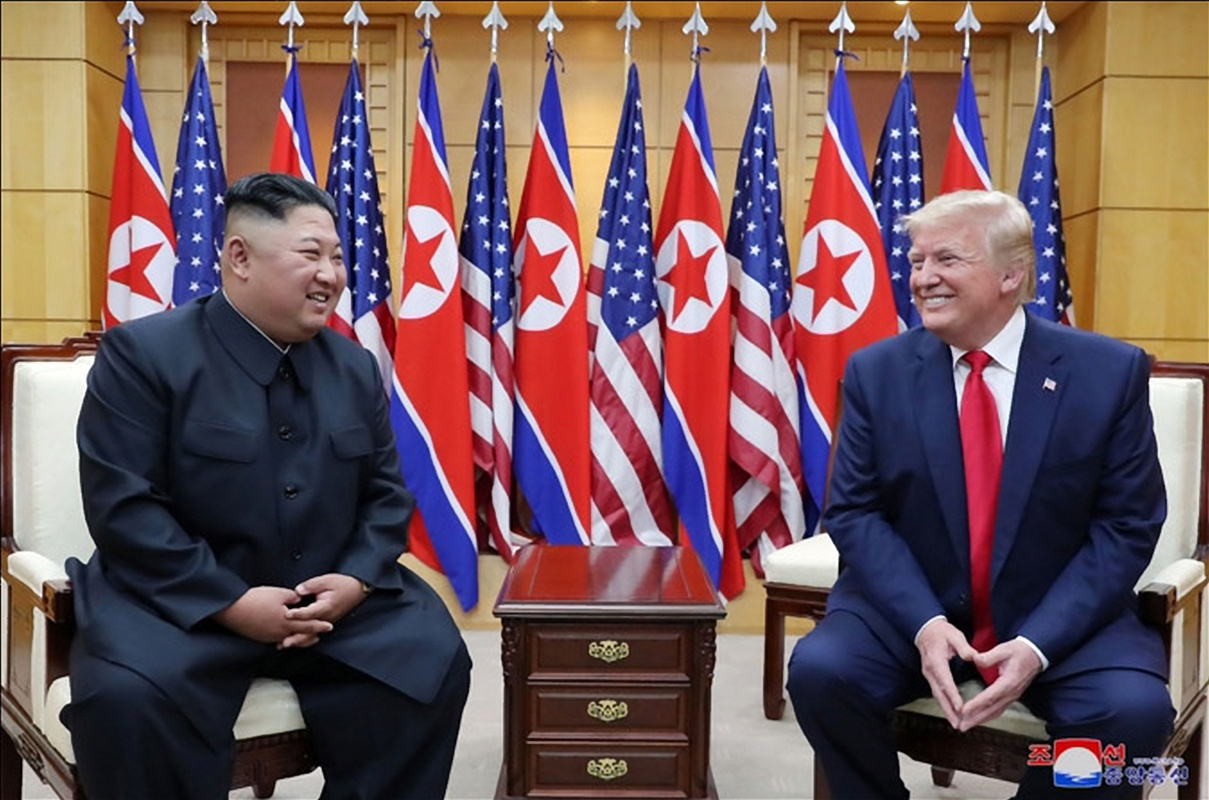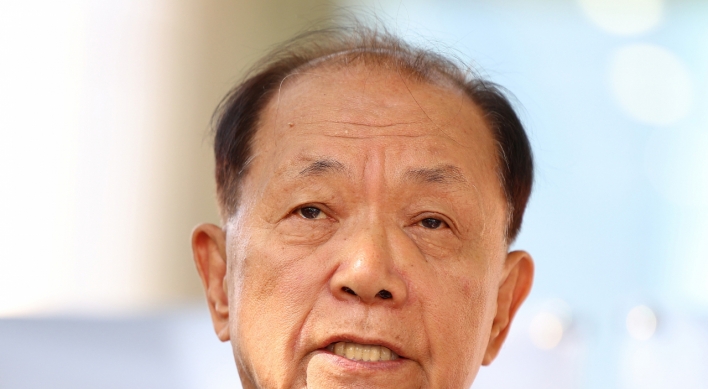Impact of DMZ meeting on denuclearization remains unclear
Experts, political circle divided on DMZ meeting’s impact, significance
By Choi He-sukPublished : July 2, 2019 - 15:17
The leaders of the two Koreas and the US on Sunday made history at the inter-Korean border, but the impact the gathering will have on denuclearization prospects remain unclear.
The ruling Democratic Party welcomed the meeting, with its Floor Leader Rep. Lee In-young saying, “Following the (US-North Korea) working-level talks, denuclearization of the Korean Peninsula and establishing peace will enter an irreversible situation.”
The ruling Democratic Party welcomed the meeting, with its Floor Leader Rep. Lee In-young saying, “Following the (US-North Korea) working-level talks, denuclearization of the Korean Peninsula and establishing peace will enter an irreversible situation.”

Meanwhile, the main opposition Liberty Korea Party raised concerns, saying that little will come of the developments without a change in the North’s stance.
“If the North clings to shutting down only Yongbyon (nuclear facility), the situation is that it is difficult to expect practical progress,” Liberty Korea Party Chairman Hwang Kyo-ahn said at a party meeting Monday, stressing that despite the meeting, there remains many obstacles.
Experts are just as divided. Some say that the event was a “stunt” that legitimized Kim more than anything else, while others say it heralded positive developments to come.
“There was talk of Trump inviting (Kim to) Washington, and it would not be easy for such (an invitation) to be raised if the premise is that the two sides’ differences confirmed in Hanoi are being maintained,” said Hong Min, director of the North Korean research division at the Korea Institute for National Unification.
“Therefore, it should be viewed as that the two sides have some flexibility in mind, and some credibility, faith should be given to (the possibility) that some agreement (on denuclearization) will come about.”
He added that the two side are likely to approach the working-level talks -- which Trump and North Korean media announced will resume as a result of the Panmunjom meeting -- with more flexibility.
“The important thing is how the North’s position will change. If the North continues with the previous position, the position from Hanoi, the negotiations will break down and possibilities will rapidly decrease,” said Chun Young-woo, a former senior secretary to the president for national security, adding that whether Sunday’s developments are positive or not cannot be assessed at present.
“If the North’s position has not changed, then holding more talks could be worse. The substance (of the matter) is how much more flexible, practical the North has become. Considering the meeting simply as a photo opportunity, the situation is that optics have completely overshadowed substance.”
According to Konyang University professor emeritus Kim Tae-woo, former head of the Korea Institute for National Unification, the US has made it clear that the North’s demands regarding denuclearization talks will not be accepted, leaving three possibilities open.
The North had demanded that the US engage talks with the “right attitude,” “calculations” and a new negotiation team, singling out US officials, including Secretary of State Mike Pompeo, as unacceptable to Pyongyang.
However, Trump has stated that Pompeo will oversee working-level talks. US officials, including national security adviser John Bolton, have since said that the US position has not changed.
The US Department of State told a South Korean news agency that no new proposals to North Korea are being considered and that the goal remains “final, fully verified denuclearization of North Korea,” echoing a tweet by Bolton.
“Neither the NSC staff nor I have discussed or heard of any desire to ‘settle for a nuclear freeze by NK,” Bolton wrote on this Twitter account, referring to a New York Times article claiming that the US may settle for freezing North Korea’s nuclear program.
According to Kim Tae-woo, the possible scenarios are the North accepting US demands for a “big deal,” both sides adhering to their previous positions, and Trump giving into Pyongyang’s demands for a phased and reciprocal deal.
The US demands that the North offer up its whole nuclear program until which point all sanctions will remain in place. On the other hand, the North demands that it is given some sanctions relief for each denuclearization step it takes.
“The second is the most likely. Working-level talks are held while both sides maintain positions. It will be a repeat of the failure of the Hanoi summit. Ultimately, the North Korean nuclear issue will inevitably be a long-term issue,” Kim Tae-woo said.
US experts have also raised doubt over the meeting’s impact on the denuclearization outlook.
“This was helpful for reducing the near-term threat, but so far it is unclear whether it will help to achieve the denuclearization that we seek,” Barry Pavel, senior vice president of the Scowcroft Center for Strategy and Security, said in an emailed statement.
“How much trust building will be required before North Korea begins the process of denuclearization? Certainly, today’s ceremony and symbolism is not unhelpful, but it is unclear how and when this path will lead to a nuclear-free North Korea.”
By Choi He-suk (cheesuk@heraldcorp.com)
Park Han-na and Jo He-rim contributed to this article. -- Ed.






![[KH Explains] No more 'Michael' at Kakao Games](http://res.heraldm.com/phpwas/restmb_idxmake.php?idx=644&simg=/content/image/2024/04/28/20240428050183_0.jpg&u=20240428180321)











![[Herald Interview] Mistakes turn into blessings in street performance, director says](http://res.heraldm.com/phpwas/restmb_idxmake.php?idx=652&simg=/content/image/2024/04/28/20240428050150_0.jpg&u=20240428174656)
